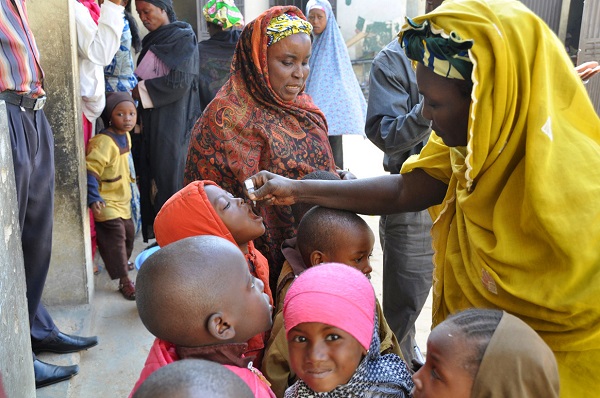
The latest Nigeria Demographic and Health Survey (NDHS) 2023-24 report has revealed significant gaps in childhood immunisation across Nigeria, with 31 per cent of children aged 12–23 months not receiving any vaccines.
The NDHS findings, shared with journalists, highlight the challenges in achieving universal immunisation coverage and reducing child mortality in the country.
“Routine vaccines in Nigeria include essential shots such as BCG (for tuberculosis), oral and inactivated polio vaccines (OPV and IPV), DPT-HepB-Hib (for diphtheria, pertussis, tetanus and hepatitis B),” the report stated.
Also listed were vaccines for Haemophilus influenzae type b, pneumococcal conjugate (PCV), rotavirus, yellow fever, meningitis and measles.
Despite the expanded immunisation schedule, only 39 per cent of children aged 12–23 months were fully vaccinated with basic antigens.
The survey also revealed stark regional disparities in vaccination coverage. The southeast recorded the highest BCG vaccination rate at 93.9 per cent, while the northwest lagged significantly at 50.2 percent.
Urban areas generally showed higher coverage than rural areas, where many children remain unvaccinated due to logistical challenges and limited access to healthcare facilities.
Science Nigeria reports that in 2022, Nigeria introduced the rotavirus vaccine in phases across northern and southern states to combat diarrheal diseases, a leading cause of infant mortality.
However, data showed a low uptake, with only 18 per cent of children receiving the third dose of the rotavirus vaccine.
Executive director of the Primary Health Care Development Agency (NPHCDA), Dr. Muyi Aina acknowledged the concerning statistics and highlighted ongoing efforts to boost immunisation rates.
“This gap in vaccination coverage leaves a significant number of children vulnerable to preventable diseases,” Aina said.
He explained that the agency has initiated outreach programmes targeting underserved communities and is collaborating with state governments to enhance vaccination infrastructure.
Executive director of the Vaccine Network for Disease Control, Mrs. Chika Offor emphasised the need for community engagement and robust public awareness campaigns to combat vaccine hesitancy and misinformation.
“Increased funding and resources for the NPHCDA are essential to strengthen Nigeria’s routine immunisation programme and achieve full vaccination coverage by 2030,” she said.
Offor described the NDHS data as a wake-up call for Nigeria’s healthcare system. “Addressing the immunisation gaps requires a concerted effort from both government and civil society to protect Nigeria’s future generations from vaccine-preventable diseases,” she added.
A community health worker in the Federal Capital Territory (FCT), Ms. Mariam Adu reported witnessing these challenges firsthand. “We’re doing all we can to encourage vaccination, but we face logistical hurdles, especially in rural areas,” Adu explained.
“Sometimes, we don’t receive the vaccines on schedule, and without reliable transportation, it’s difficult to reach families who live far away,” she said.
Adu noted that additional resources and mobile clinics could help bridge the gap. “When we go directly to villages, mothers are eager to vaccinate their children. With more support, we could reach even more families,” she added.
At Garki Hospital on Monday morning, mothers shared their struggles to fully vaccinate their children.
Mrs. Fatima Yusuf, a 28-year-old mother, described the challenges she faces despite understanding the importance of vaccines.
“I walked over 40 kilometers to get here, but when I arrived, they told me the vaccine we needed wasn’t available,” she said, frustration evident in her voice.
“Many women in my village want to vaccinate their children, but it’s hard to reach the health center, and sometimes, the vaccines are not even there,” Yusuf added.
The NDHS report underscores the urgent need for comprehensive strategies to close immunization gaps and ensure all Nigerian children are protected from vaccine-preventable diseases.

